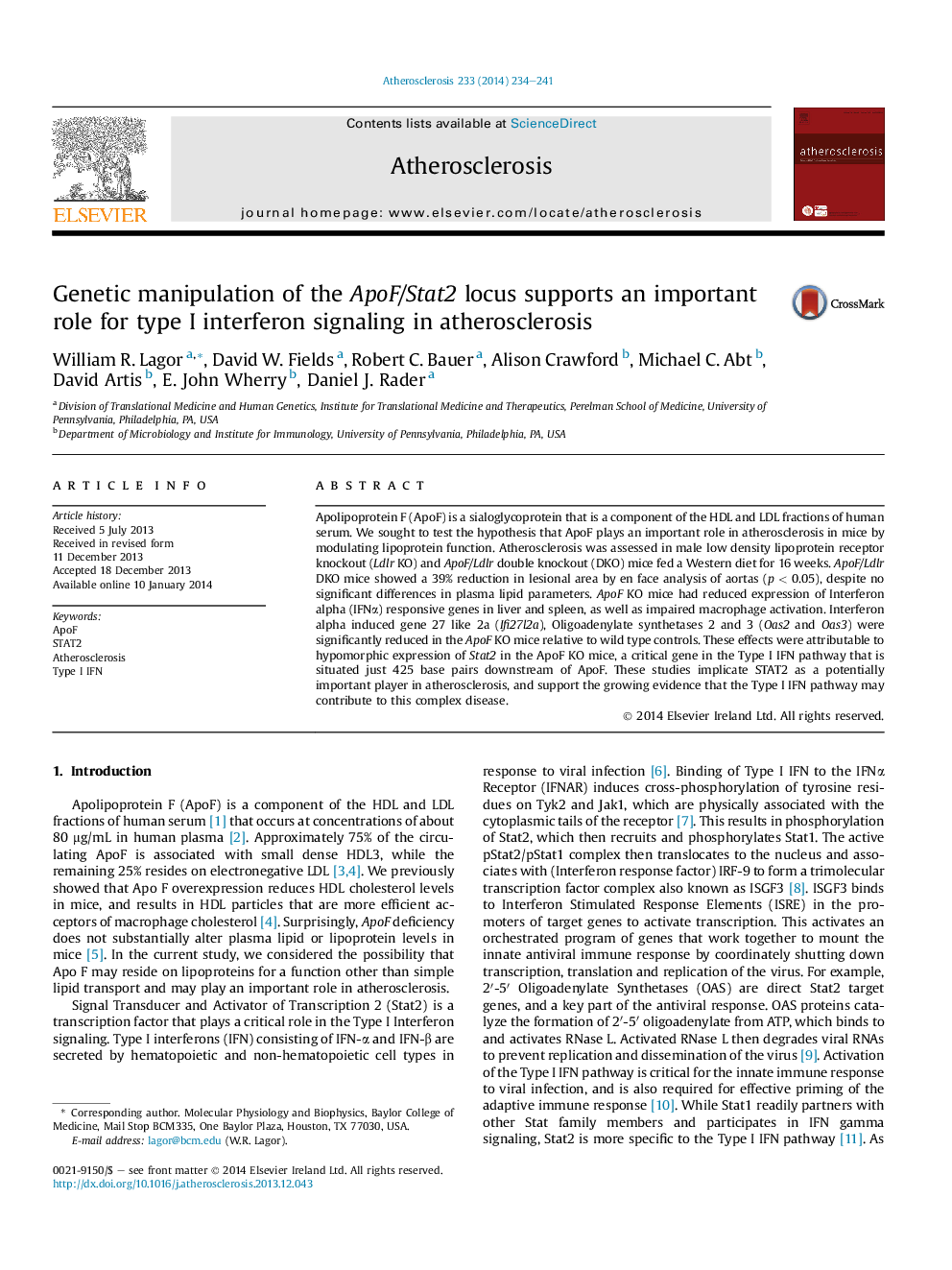| کد مقاله | کد نشریه | سال انتشار | مقاله انگلیسی | نسخه تمام متن |
|---|---|---|---|---|
| 5946601 | 1172360 | 2014 | 8 صفحه PDF | دانلود رایگان |

- ApoF KO mice are protected from western diet induced atherosclerosis via a lipid independent mechanism.
- Reduced atherosclerosis is accompanied by lower expression of IFN alpha target genes and impaired immune cell activation.
- Deletion of the ApoF gene results in hypomorphic expression of Stat2, supporting a role for Type I IFN in atherogenesis.
Apolipoprotein F (ApoF) is a sialoglycoprotein that is a component of the HDL and LDL fractions of human serum. We sought to test the hypothesis that ApoF plays an important role in atherosclerosis in mice by modulating lipoprotein function. Atherosclerosis was assessed in male low density lipoprotein receptor knockout (Ldlr KO) and ApoF/Ldlr double knockout (DKO) mice fed a Western diet for 16 weeks. ApoF/Ldlr DKO mice showed a 39% reduction in lesional area by en face analysis of aortas (p < 0.05), despite no significant differences in plasma lipid parameters. ApoF KO mice had reduced expression of Interferon alpha (IFNα) responsive genes in liver and spleen, as well as impaired macrophage activation. Interferon alpha induced gene 27 like 2a (Ifi27l2a), Oligoadenylate synthetases 2 and 3 (Oas2 and Oas3) were significantly reduced in the ApoF KO mice relative to wild type controls. These effects were attributable to hypomorphic expression of Stat2 in the ApoF KO mice, a critical gene in the Type I IFN pathway that is situated just 425 base pairs downstream of ApoF. These studies implicate STAT2 as a potentially important player in atherosclerosis, and support the growing evidence that the Type I IFN pathway may contribute to this complex disease.
Journal: Atherosclerosis - Volume 233, Issue 1, March 2014, Pages 234-241